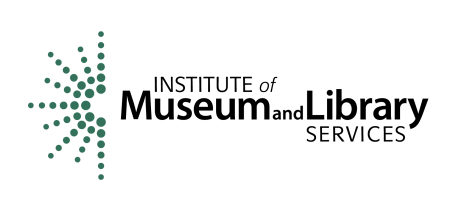Rethinking Chicago’s STEM Programming in the Age of COVID-19
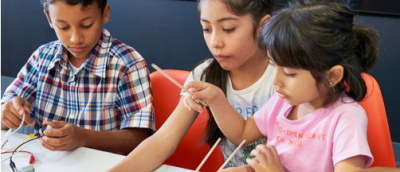
Authored by John Mangahas, Administrative Children's Librarian, Chicago Public Library
At Chicago Public Library, STEM is an important element of programs offered to children and families throughout the city. From the Summer Learning Challenge to afterschool programs, our librarians have embraced incorporating STEM themes into their work to encourage the development of important skills such as problem solving and critical thinking. As an active member of ULC’s Partners for Middle School STEM initiative, we launched a three-week series of themed engineering programs that challenged middle schoolers to address engineering challenges in teams by using common craft supplies. However, once the pandemic hit, we needed to transition our STEM programming to virtual spaces. But, what do library STEM offerings look like during pandemic conditions?
As COVID-19 hit in 2020, the Children’s Services and Family Engagement team at CPL was planning the year’s Summer Learning Challenge, a program that encourages children to read and learn all summer long through a variety of activities, including a strong emphasis on hands-on STEM. During our initial shutdown in March, our team was tasked with figuring out how to make the summer program work with safety protocols in mind. In my role in the department, I am responsible for booking summer programmers, including science educators who conduct hands-on programs. Without being able to gather in large numbers and with all in-person programs canceled, we still wanted to reach patrons with engaging STEM activities. The following three approaches allowed us to continue to provide our families with STEM-focused learning opportunities during the summer and beyond.
Grab and Go Kits
To encourage at-home learning, one of our immediate thoughts was to create activity kits that families could pick up at their local branch to do at home. This is an approach many organizations that work with youth have taken and it seems to be one of the most popular. I led a small team that came up with six different kits to be distributed throughout the summer.
Many of the kits were focused on engineering to tie in with our summer architecture theme. One of our most popular kits challenged kids to use straws and paper clips as their building materials to create their own structures. We designed instructions to include book titles to tie in with each specific activity, questions to encourage kids to reflect on the activity and extension activities to promote further exploration of the materials and themes introduced by the kit.
Response to the grab and go kits from librarians and patrons was overwhelmingly positive — we distributed more than 24,000 individual kits to our branches. The grab and go kit model has become a staple of our branch offerings and we’ve continued to roll out STEM kits with different themes to support ongoing exploration during the school year.
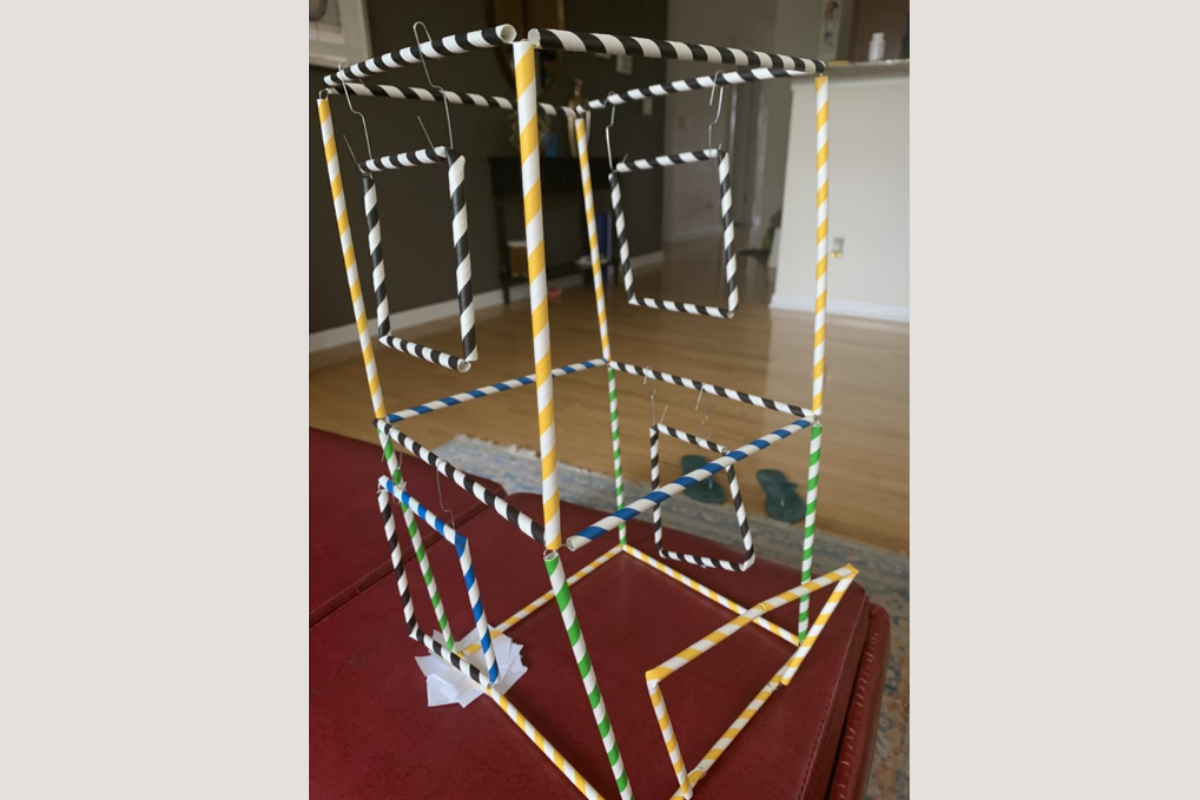
Pictured: A building made by a library patron with straws and paper clips with materials distributed as part of a Summer Learning Challenge Grab and Go Kit. Photo Credit: Chicago Public Library
Online Programming
During the spring shutdown, a number of us were also part of a working group charged with rolling out a virtual programming plan. We were tasked with figuring out the needs of our specific programming teams, logistical concerns, training for staff and many other details. Just in time for the start of the Summer Learning Challenge, we introduced guidelines for staff to be able to conduct programs via Zoom. Although this was brand new for much of our staff, many of them jumped right into using these new tools to conduct programs ranging from storytimes to book discussions and of course, hands-on STEM programming.
On Zoom, librarians facilitated LEGO building challenges, demonstrated how physics principles can be used to stand on top of plastic cups and how those principles tie into architecture. Now, months after first introducing online programming to our patrons, hands-on STEM programs are some of our most popular school-aged offerings.
One librarian has been conducting a popular series of kitchen science programs that features activities such as making home-made ice cream while highlighting the science behind the process. She recently had 40 individuals join in for a session! Another notable program involved librarians facilitating a series of Zoom workshops on how to use Tinkercad to design 3-D building models that participants could submit to us via our website. The files were then sent to a branch of the patron’s choosing to be 3-D printed for them to pick up.
Since the summer, our librarians have also begun providing supplies for some of the STEM programs that require less common materials. In a hybrid of the grab and go model and virtual programming, participants can often pick up materials at a branch then join a Zoom session at a later time to learn how to use them.
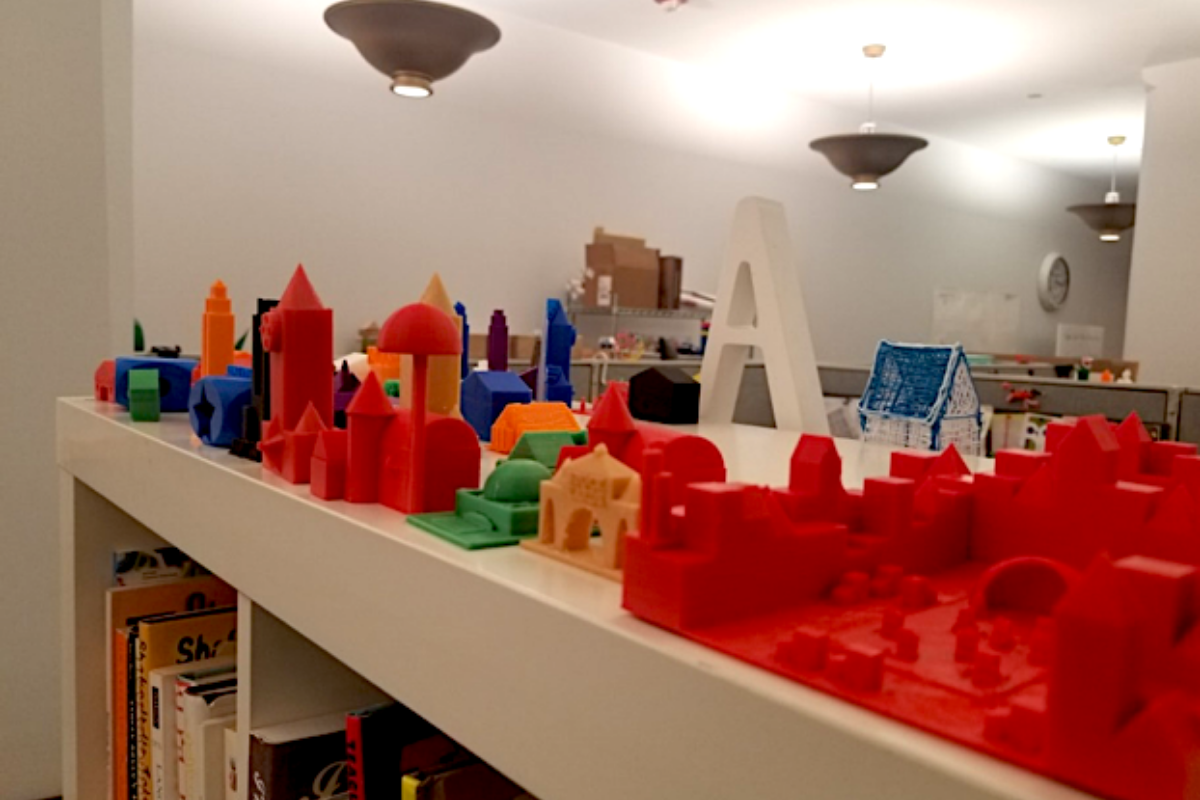
Pictured: 3-D printed model buildings designed during Tinkercad workshops on Zoom. Photo Credit: Aldo Vasquez, Chicago Public Library
Online Videos
Another approach we’ve implemented is utilizing video content to keep our patrons engaged with STEM. Although we started off with prerecorded storytimes for our youngest patrons, we quickly planned additional videos to support our older summer learners. This in itself was a challenge because the number of people on our team that had video filming and editing skills was minimal. Fortunately, a small group of librarians on our admin team formed a production team and were able to identify the tools needed to create video content. These team members devoted the necessary time to become proficient in filming and editing. We now release regular weekly video activities to our YouTube channel, many of which demonstrate at home science and engineering activities.
As we move forward with library programming, we will continue to look for new ways to interact with our patrons and bring them opportunities to engage in STEM learning. Although a return to a traditional model of library services is still off in the distance, some of our current methods of engagement may still prove to be effective and of interest even when in-person programming starts back up again.
Despite the challenge of having to rethink providing STEM opportunities to our patrons, the pandemic has provided us with invaluable lessons on how to engage our users in new ways. We look forward to being able to continue bringing STEM to our patrons through both traditional means as well as the new methods we’ve adopted in recent months.
John Mangahas is an administrative children’s librarian in the Children’s Services and Family Engagement department at Chicago Public Library.
STEAMed and Chopped: Using Tween Advisory Groups to Design Programs
Chicago Public Library
ULC STEM Program Model
About the ULC Partners for Middle School STEM Initiative
Developed in partnership with the National Center for Interactive Learning at the Space Sciences Institute and funded by the Institute for Museum and Library Services, this two year project focused on building community partnerships that resulted in increased science, technology, engineering and math learning opportunities for low-income middle school students in urban areas.
This project was made possible in part by the Institute of Museum and Library Services grant LG-95-18-0025-18.
Related Articles
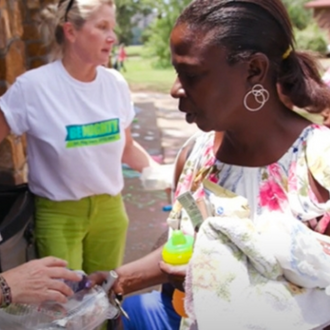
Parks and Recreation + Public Libraries = Partners in Advancing Community Well-Being
National Recreation and Park Association
National Recreation and Park Association Director of Health Allison Colman highlights how libraries and parks and rec agencies are increasingly leveraging their unique resources, strengths and assets to collaborate and work towards the shared goals of advancing equity, promoting health and wellness, closing the opportunity gap and building environmental and community resiliency.
Learn More
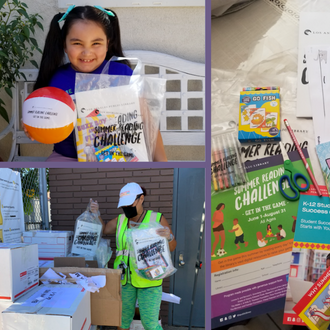
Reimagining Summer Learning During the Pandemic
Urban Libraries Council
Discover how ULC libraries across North America have adapted their summer learning offerings to keep kids, teens and adults learning all summer long, despite the new challenges of COVID-19.

